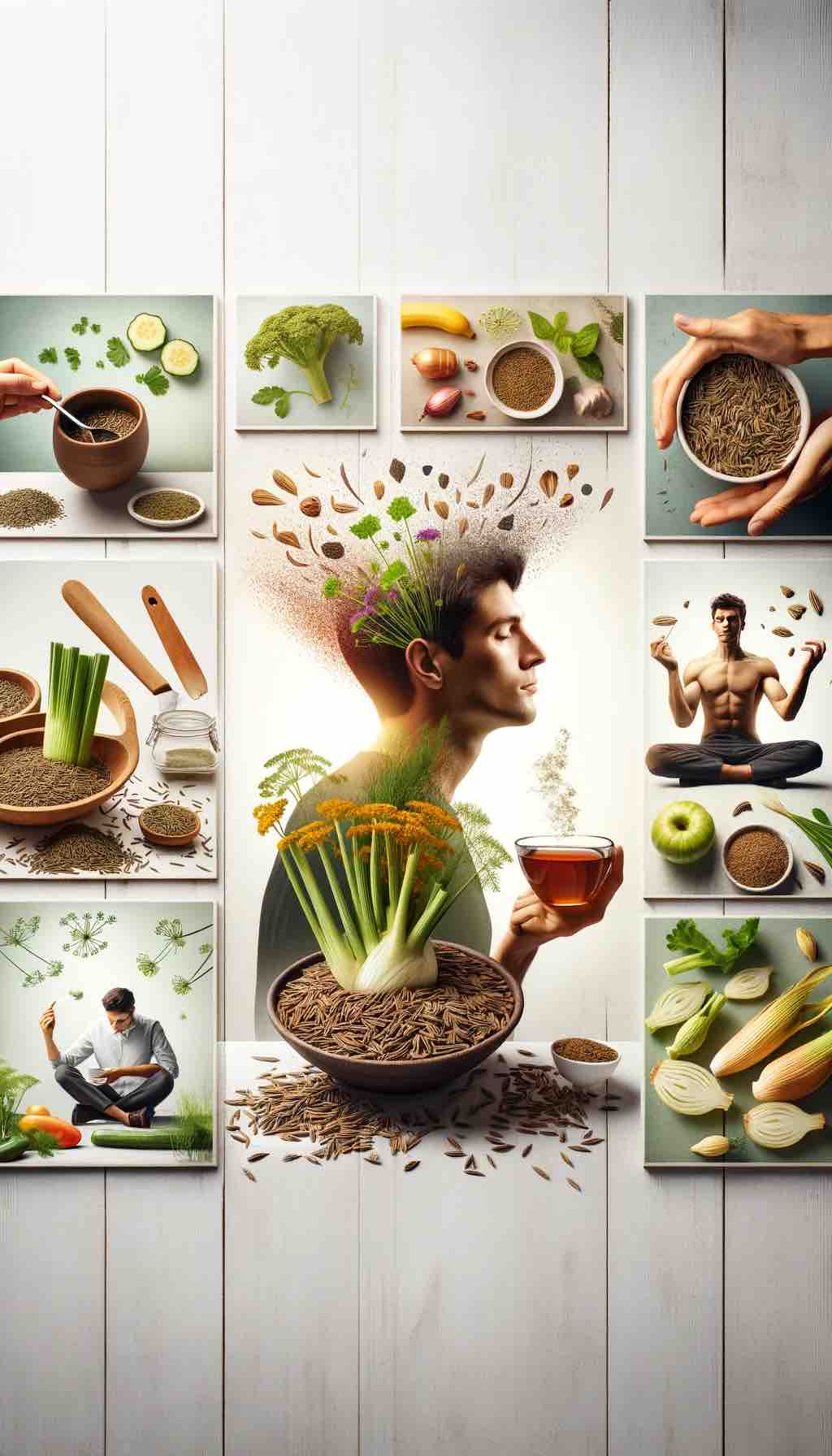
Introduction:
Welcome to our in-depth exploration of Ozempic use during breastfeeding, a topic that has sparked curiosity and concern among many. As we embark on this journey, it’s essential to recognize the insights provided here are a culmination of extensive AI-based research across a plethora of online resources. However, navigating the realm of medication use during breastfeeding is not just a matter of sifting through data – it’s about understanding the nuances of health, wellness, and the profound bond between a mother and her child. Therefore, while we strive to present a human, engaging, and useful perspective, we strongly advise personal discretion and consultation with healthcare professionals.
In this exploration, we delve into what Ozempic is, its implications during breastfeeding, and the kaleidoscope of viewpoints from various medical sources. Our goal is to shed light on this complex topic, offering clarity and guidance to those who find themselves at this crossroad. As you read through, remember that this blog post serves as a guidepost, not a definitive map. The decisions regarding health and wellness are deeply personal and should always be made in tandem with professional medical advice.
Section 1: Understanding Ozempic
What is Ozempic?
Ozempic, known scientifically as Semaglutide, has emerged as a notable name in the world of medicine, primarily for its role in managing type 2 diabetes. But what exactly is Ozempic? It’s a medication that belongs to a class of drugs known as GLP-1 receptor agonists. By mimicking the function of the GLP-1 hormone, it helps regulate blood sugar levels, making it a vital tool for many battling diabetes. In recent times, Ozempic has gained attention for its effectiveness in aiding weight loss, adding another layer to its growing profile (source: NCBI, Drugs.com).
Ozempic and Its Growing Popularity
Ozempic’s rise to prominence isn’t just due to its efficacy in diabetes management; its role in weight loss programs has also been a subject of interest. With obesity being a global health concern, medications that aid in weight management are increasingly sought after. However, with such popularity comes a critical need for understanding the implications of its use in various life stages, especially during sensitive phases like breastfeeding (source: Mayo Clinic).
Section 2: The Breastfeeding Dilemma
Breastfeeding: A Sensitive Phase
Breastfeeding is not just a nutritional necessity; it’s a phase of deep emotional and physiological connection between a mother and her child. During this period, the safety of medications taken by the mother is paramount, as substances can pass through breast milk and potentially affect the infant. This raises an important question for new mothers using Ozempic: Is it safe to continue this medication while breastfeeding? The answer, however, is not straightforward (source: LactMed, MotherToBaby).
The Crux of the Concern
The primary concern with any medication during breastfeeding is the risk it poses to the infant. In the case of Ozempic, the lack of comprehensive clinical data specifically addressing its safety during lactation adds to the complexity. While it’s known that Ozempic is a large peptide molecule that is extensively protein-bound, which theoretically suggests minimal passage into breast milk, the absence of direct research on lactating mothers leaves room for uncertainty. This uncertainty is a source of anxiety for many mothers who rely on Ozempic for their health but also prioritize the safety of their breastfeeding infants (source: Drugs.com).
Navigating the Unknown
Given the paucity of definitive clinical data, mothers and healthcare providers often find themselves navigating in a realm of unknowns. While some sources suggest that due to its molecular structure, Ozempic’s transmission into breast milk might be negligible, others caution against its use, citing a lack of empirical evidence to confirm its safety. This dichotomy represents a broader challenge in postpartum medication management: balancing the needs and health of the mother with the welfare of the infant (source: NCBI).
Section 3: Research Insights and Medical Perspectives
The Landscape of Current Research
When delving into the world of medical research regarding Ozempic and breastfeeding, one encounters a landscape marked by limited data. Numerous authoritative sources, including the NCBI’s LactMed database and Drugs.com, acknowledge the absence of comprehensive studies directly examining the impact of Ozempic on breastfeeding mothers and their infants. This gap in research is a significant point of consideration, as it highlights the need for further investigation to ascertain the medication’s safety profile during lactation.
Understanding the Molecular Profile of Ozempic
The molecular structure of Ozempic, a substantial peptide molecule heavily bound to proteins, theoretically suggests a minimal transfer into breast milk. This characteristic of Ozempic might imply a reduced risk of it affecting the breastfed infant. However, without concrete clinical studies specifically examining its presence in breast milk and the subsequent effects on infants, these remain educated conjectures rather than established facts (source: NCBI, Drugs.com).
Risks and Concerns: A Cautionary Note
While the theoretical risk to breastfeeding infants appears low, some sources, including an article from Romper, highlight concerns based on animal studies. These studies have shown potential adverse effects on growth and development when similar medications are used during pregnancy and lactation. Though such animal study results do not always directly translate to humans, they do raise flags that merit attention and caution.
Medical Community’s Stance
The medical community, in the absence of solid data, remains cautious. Healthcare professionals often advise against the use of medications like Ozempic during breastfeeding unless the benefits significantly outweigh the potential risks. This conservative approach is reflective of the guiding principle in medicine: ‘first, do no harm.’ In cases where Ozempic is considered essential for the mother’s health, alternative strategies, such as monitoring the infant for any adverse effects, might be suggested (source: MotherToBaby).
In this section, we delve into the existing research and medical viewpoints on Ozempic use during breastfeeding. We highlight the lack of direct clinical studies, the theoretical safety profile based on its molecular structure, and the cautious approach of the medical community due to potential risks, emphasizing the need for individualized medical advice.
Section 4: Expert Opinions and Real-World Recommendations
Gathering Insights from Health Authorities
To navigate the murky waters of using Ozempic while breastfeeding, it’s crucial to consider the perspectives of various health authorities and experts. The NCBI’s LactMed database and Drugs.com both underscore a crucial point: there’s no definitive clinical evidence about the use of Ozempic during breastfeeding. This lack of data leads to a reliance on theoretical knowledge about the drug’s molecular structure and its likely behavior in the human body.
Diverse Medical Opinions
Healthcare professionals vary in their recommendations regarding Ozempic and breastfeeding. Some are guided by the principle of minimal risk, deduced from the drug’s molecular characteristics. They suggest that the low oral absorption and high protein binding of Ozempic potentially minimize its transfer into breast milk. Conversely, others, referencing sources like Romper, emphasize caution due to the unknowns and potential risks highlighted in animal studies. This divergence in opinions reflects the broader challenges faced in prescribing medications during breastfeeding, where the health of both mother and child is paramount.
Recommendations for Breastfeeding Mothers
Given the uncertainty, the prevailing advice for mothers who might need Ozempic is to consult with their healthcare provider. This consultation should involve a thorough discussion of the mother’s health needs, the potential risks and benefits of continuing Ozempic during breastfeeding, and any available alternatives. In cases where Ozempic is deemed necessary, some experts suggest closely monitoring the infant for any signs of adverse effects as a precautionary measure (source: MotherToBaby).
The Role of Informed Decision-Making
Ultimately, the decision to use Ozempic while breastfeeding should be an informed one, made collaboratively by the mother and her healthcare provider. It’s a decision that weighs the benefits of the medication for the mother’s health against the potential, albeit theoretical, risks for the breastfeeding infant. Each case is unique, and personalized medical advice is essential in making the best decision for both mother and child.
Section 5: Alternatives and Precautions for Nursing Mothers
Exploring Alternative Options
For nursing mothers who require treatment for conditions like type 2 diabetes or need assistance with weight management, exploring alternatives to Ozempic becomes a critical consideration. The medical community often suggests looking at other medications with a more established safety profile during breastfeeding. Some of these alternatives might include different classes of diabetes medications or weight management strategies that are better researched in the context of lactation. However, the suitability of these alternatives should always be evaluated on an individual basis, taking into account the mother’s specific health circumstances (source: NCBI, MotherToBaby).
Lifestyle Modifications and Support
In addition to or instead of medication, lifestyle modifications can play a significant role in managing health conditions during the breastfeeding period. Dietary changes, increased physical activity, and other non-pharmacological interventions might be recommended. These lifestyle adjustments, coupled with support from healthcare professionals like dietitians and diabetes educators, can provide a holistic approach to health management without relying solely on medication (source: Mayo Clinic).
Precautions When Using Ozempic
In cases where Ozempic is deemed necessary during breastfeeding, certain precautions are advised. This includes closely monitoring the infant for any unusual symptoms or side effects, such as digestive issues or changes in feeding patterns. Regular consultations with healthcare providers, including pediatric check-ups, become even more essential to ensure the well-being of both mother and child (source: Drugs.com).
The Importance of Personalized Care
Every mother’s situation is unique, and what works for one may not be appropriate for another. This is why personalized care becomes crucial. Healthcare providers should consider the mother’s overall health, her breastfeeding goals, and the potential impact on the infant when discussing treatment options. Open and honest communication between the mother and her healthcare team is vital in navigating these decisions.
Section 6: The Bottom Line – Balancing Health and Informed Choices
Weighing the Benefits Against Risks
The decision to use Ozempic while breastfeeding embodies the delicate balance of weighing potential benefits against unknown risks. For mothers managing conditions like type 2 diabetes or seeking weight loss solutions, Ozempic can be a vital component of their treatment. However, the lack of specific data on its use during breastfeeding necessitates a cautious approach. This is where the role of healthcare providers becomes pivotal – guiding mothers through an informed decision-making process that takes into account the health and well-being of both the mother and the infant (source: NCBI, MotherToBaby).
Personalized Medical Advice: A Keystone
One clear takeaway from the diverse sources and expert opinions is the indispensability of personalized medical advice. Every mother’s health profile, breastfeeding journey, and medical needs are unique. Therefore, generalized recommendations often fall short. A thorough discussion with healthcare providers – considering all aspects of the mother’s health and the potential impact on the infant – forms the cornerstone of any decision regarding medication use during breastfeeding. The insights offered by sources like Drugs.com and the Mayo Clinic reinforce the need for this personalized approach.
The Role of Ongoing Monitoring
For mothers who choose to continue Ozempic while breastfeeding, ongoing monitoring is crucial. This involves regular check-ups for both mother and child, vigilance for any adverse reactions in the infant, and an open channel of communication with healthcare providers. Adjustments to the treatment plan should be made promptly if any concerns arise.
Empowering Mothers Through Information
Ultimately, the goal of this discussion is to empower mothers with information. Knowledge is a powerful tool in making healthcare decisions, especially in scenarios where the data is not black and white. By understanding the potential implications, consulting healthcare professionals, and considering personal health needs, mothers can make choices that align with their health goals and the safety of their infants.
Conclusion
In conclusion, the use of Ozempic during breastfeeding is a complex issue that intertwines medical efficacy with maternal and infant safety. The lack of conclusive data calls for a cautious, personalized approach, prioritizing open communication with healthcare providers and ongoing monitoring. As we navigate this intricate landscape, the overarching principle remains the same – the well-being of both mother and child is paramount.
10 FAQs with answers for the post:
- Can I use Ozempic while breastfeeding?
- While there is no definitive clinical data on Ozempic use during breastfeeding, it’s recommended to consult your healthcare provider for personalized advice, considering your health needs and potential risks for the infant.
- Is Ozempic safe for my breastfeeding baby?
- Due to the lack of specific research, the safety of Ozempic for breastfeeding infants remains uncertain. Discuss the potential risks and benefits with your healthcare provider.
- What are the concerns with using Ozempic during breastfeeding?
- The main concern is the unknown impact on the breastfed infant, as there is limited data on Ozempic’s presence in breast milk and its effects on infants.
- Are there any alternatives to Ozempic for breastfeeding mothers?
- Yes, there are alternatives. It’s important to discuss with your healthcare provider about other medications or lifestyle changes that might be suitable for your condition.
- What precautions should I take if I continue Ozempic while breastfeeding?
- If you continue Ozempic, closely monitor your infant for any adverse reactions and maintain regular consultations with your healthcare provider.
- How does Ozempic affect milk production?
- Currently, there is no clear evidence to suggest that Ozempic affects milk production. However, individual responses may vary.
- Can Ozempic impact my baby’s development?
- The impact of Ozempic on an infant’s development is not well understood due to the lack of specific studies.
- Should I stop breastfeeding to use Ozempic?
- This decision should be made in consultation with your healthcare provider, considering the benefits of breastfeeding and your health needs.
- Are there any signs of Ozempic affecting my baby that I should watch for?
- Monitor for symptoms like digestive issues, changes in feeding patterns, or unusual fussiness, and consult your healthcare provider if you notice any concerns.
- How long does Ozempic stay in the body?
- Ozempic can stay in the body for several weeks. Discuss with your healthcare provider about its duration and potential implications for breastfeeding.
Blog Tags for the Post: Ozempic, Breastfeeding, Medication Safety, Diabetes Management, Weight Loss, Maternal Health, Infant Care, Healthcare Advice, Nursing Mothers, Medical Research














